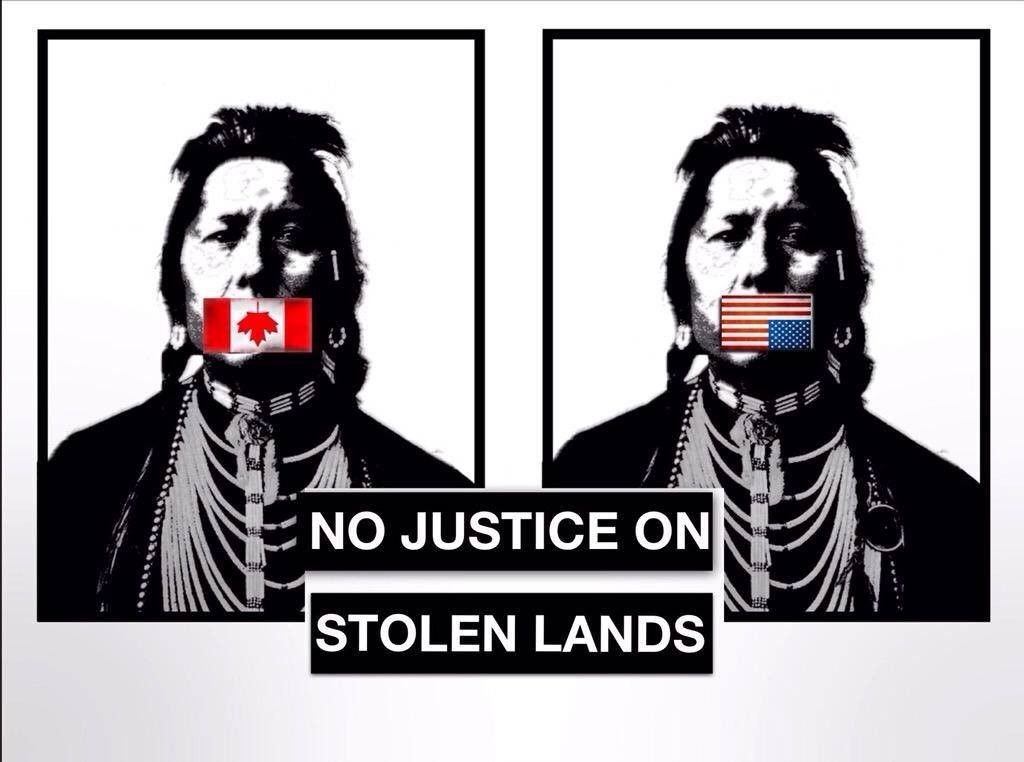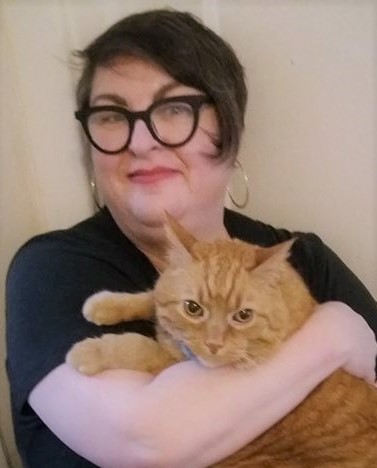A response to “Decolonizing Religious Studies and Its Layers of Complicity,” an interview by David McConeghy with Natalie Avalos
by Lisa Poirier
Last week, David McConeghy was kind enough to share with me a recording and a transcript of his recent interview with Natalie Avalos, and I was delighted to find that a good portion of their discussion addressed decolonizing the discipline of religious studies and decolonizing pedagogical praxes.
The gift of this interview has an especially relevant dimension for me. In April, I learned that my proposal entitled “Decolonizing Service Learning with the American Indian Center of Chicago” was accepted for presentation in a joint session of the Religion and Cities Unit and the Transformative Pedagogies Unit, planned for the November 2020 annual meeting of the American Academy of Religion. However, with regret, I decided not to present it at the (now online) annual meeting. I had hoped to meet with Heather Miller, the Executive Director of the AIC, several times this summer to collaborate on a new service-learning project. But the pandemic dashed these plans, so I decided to postpone presenting on this project until more groundwork has been completed.
But now I am presented with a new opportunity to share my thoughts about decolonizing our discipline, our syllabi, and our classrooms. I want to lift up the urgent questions to which Natalie Avalos has so thoughtfully responded, and I want to invite all of us to think about them with intentionality and with specificity.
“What can we recommend to those that are on board with the necessity in the long overdue-ness of decolonizing religious studies? What are the first steps that we might take that put us on the longer lifelong process of doing this work for our students and for our field?”
As a historian of religions of the Americas, and especially as a non-Native scholar of Native American religions, I have a deep obligation to actively and constantly seek out new ways to engage in the process of decolonization. Adrienne Keene, in a piece written for Indian Country Today entitled “Advice for non-Indigenous instructors of Native Studies,” provides some immediately practical measures.
Look at your “Native American Religions” or “Indigenous Religions” syllabus. Consider removing every reading by a non-native author, unless that particular reading is being used critically.
She also advises us to
[A]sk “why?” for each reading and assignment. Ask what it is teaching the students, what you hope they take away from it. If the answer for each isn’t working toward a goal of decentering settler colonialism and centering Indigenous peoples, take it off. Non-Native voices have dominated the research and discourse on Indigenous peoples for hundreds of years, it is important to disrupt that pattern in your course.
But these practical recommendations must be rooted in a larger commitment. We must interrogate the methods and hierarchies of knowledge production that underpin the academic enterprise. Natalie Avalos identifies this as “recognizing, naming, and making visible the operations of power in the discipline of religious studies, and in the classroom, and centering indigenous sovereignty in the curriculum.” Her example of the “decolonial autobiography” is a brilliant example of an assignment designed to bring students into this process so they can perceive that they are already implicated in these practices, and they are already participating in these conversations. She prompts this assignment with questions like these:
What are the colonial layers of the places that they grew up? Who were the first peoples there? When did the settlers first come? Are the first people still there? What happened to them? What kind of relationship is there in that place with those first peoples? What is your relationship to power there? What is your complicity there?
These are exactly the types of questions I will ask my students to wrestle with in the new service-learning class I will be creating with Heather Miller at the AIC.
Let me provide some background. At DePaul University in Chicago, all students across our seven undergraduate colleges are required to participate in Experiential Learning. One popular way to fulfill DePaul’s Experiential Learning requirement is through a specific credit-bearing course designed and approved as a Community-Based Service Learning (CBSL) class.
My colleague Chris Tirres is currently leading faculty in our Religious Studies department in a Wabash Center for Teaching and Learning in Theology and Religion grant-funded project that allows us to develop CBSL classes that enable us to connect theory to praxis, and help our students to connect with some of the many and varied religious communities in Chicago.
We are embarking on this Wabash Center / CBSL project in engagement with DePaul University’s Irwin W. Steans Center for Community-Based Service Learning. The Steans Center requires that faculty facilitators of service-learning partnerships learn about, learn from, discuss, propose, create and maintain decolonized modes of engagement in conversation with our community partners. For the Steans Center, decolonized service learning involves rejecting and dismantling the colonial, racist, and frankly inapplicable model of privileged (assumed white) college students helping needy community members (assumed to be of color). Rather, decolonized service-learning recognizes that the communities of our city have a great deal to teach our students, and that service to these urban communities must be designed and approved by the communities themselves. Our university can work in partnership with these communities only as long as everyone understands that a) the community drives the agenda; b) our university’s students have skills and also need to acquire skills; and c) communities have needs and also have strengths, as well as ideas about and experience with meeting those needs and drawing on those strengths.
The primary theoretical basis for my own contribution to this project is the work of Joe Hobot (Hunkpapa Lakota), and in particular, “The Seven Learnings: Toward Indigenizing School Practices,” a portion of a National Urban Indian Family Council (NUIFC) white paper focused on K-12 pedagogy that I find equally applicable to higher education. [PDF available here.] The Seven Learnings, as presented by Joe Hobot, are:
1) Learning Out-of-Doors, on Land and on Water; 2) Learning in Community; 3) Learning Across Generations; 4) Learning in Redefined Spaces; 5) Learning Leadership and Advocacy; 6) Learning Indigenous Language; and 7) Learning Indigenous Cultural Practices.
With the Seven Learnings as a guide, I will be collaborating with Heather Miller and her staff to identify a Direct Service (a service performed by students that benefits the AIC’s existing programming); a Project-Based Service (a tangible product created by students that will benefit the AIC); a Community-Based Research project (a research effort defined and driven by a community partner to which students will contribute); or an Advocacy project (in which students support existing initiatives that directly address social, economic, and political inequality and that lead to systemic change).
This service-learning project will be a central focus for me for some time, but it is just another step in the process of decolonization. My introductory class on Native American Religions already centers Native voices and focuses on issues of land and sovereignty, but the next iteration of that class in 2021 will incorporate a new textbook written Suzanne Crawford O’Brien in collaboration with Inés Talamantez. This book, Religion and Culture in Native America, is intentionally disruptive of settler-focused structures like “Pre-Columbian” and “Post-Columbian” and classical theoretical structures like “Myth” and “Ritual.” Instead, it is organized to “emphasiz[e] the concerns and commitments of contemporary tribal communities,” with chapter titles like “Earth,” “Water,” “Food,” and “Medicine.”
The ongoing work of decolonization is also essential on a departmental level. If your department is teaching a foundational “World Religions” class as if Masuzawa and others have never identified the European Christian narrative that shapes it, curricular reform might be overdue. If your “Method and Theory” class doesn’t problematize the Müller/Freud/Marx/Durkheim/Weber/Geertz parade with critiques by the likes of Chidester/Fanon/Loomba/Kurasawa/Zimmerman/Asad, it’s time you joined the curriculum committee. If your “Religion, Gender, and Sexuality” class doesn’t include the work of Qwo-Li Driskill, seize the opportunity to update it.
As for me, in the longer term, I am hoping to contribute toward the establishment of a Native American Studies minor at DePaul that is rooted in these Seven Learnings; but again, a true decolonizing process mandates that I follow and support my indigenous colleagues in this initiative. It is also critical that I use my privilege as a tenured scholar to make sure this effort foregrounds the need to hire more indigenous faculty in every department at my university.
As Natalie Avalos has illustrated so well in her scholarly work, decolonization is a process of becoming. Our work as scholars of religion, then, is processual, has no end point, and requires ongoing engagement with land and with community.
References
Avalos, Natalie. “Becoming Human: ‘Urban Indian’ Decolonisation and Regeneration in the Land of Enchantment.” In The Brill Handbook of Indigenous Religion(s), edited by Greg Johnson and Siv Ellen Kraft. Leiden, Boston: Brill, 2017.
Crawford O’Brien, Suzanne. 2020. Religion and Culture in Native America, Lanham, MD: Rowman & Littlefield.
Keene, Adrienne. 2019. “Advice for Non-Indigenous Instructors of Native Studies,” Indian Country Today, February 1, 2019. https://indiancountrytoday.com/opinion/advice-for-non-indigenous-instructors-of-native-studies-fclZSBHr5kmVtuwSx5KNhA



